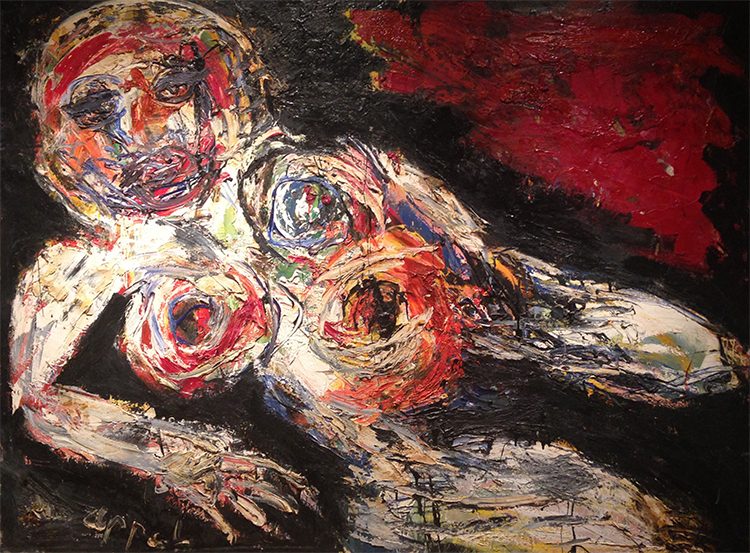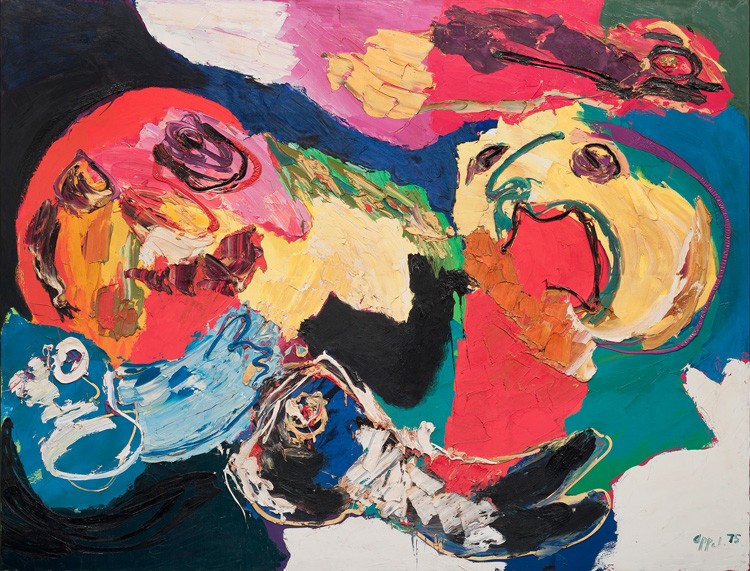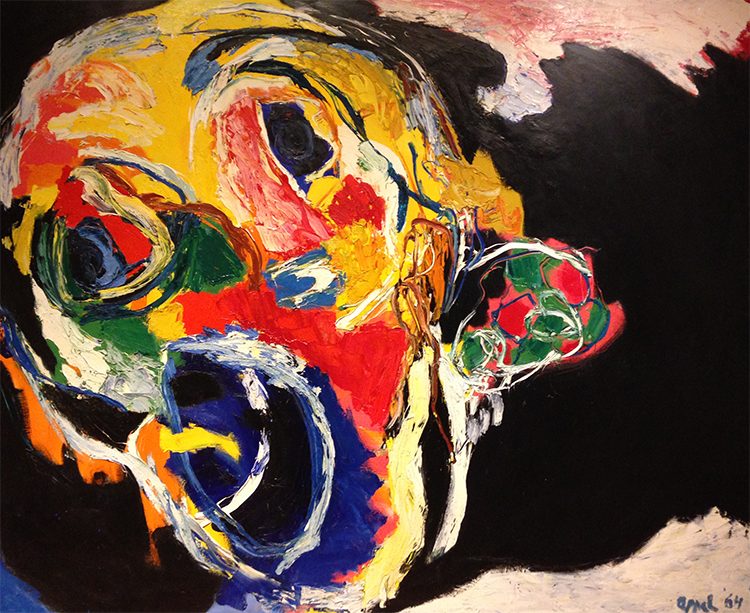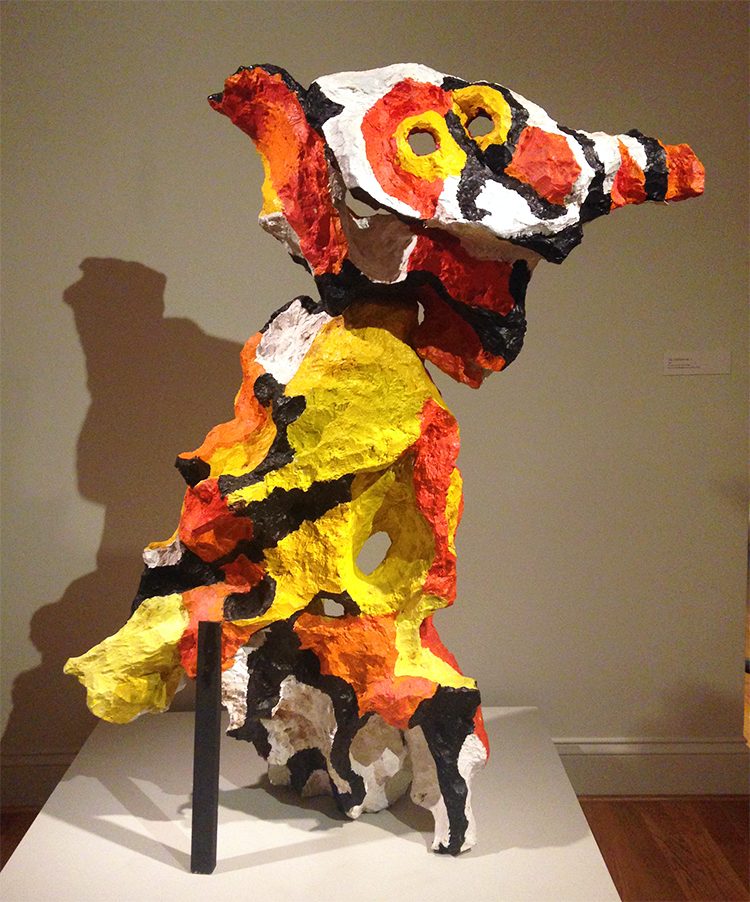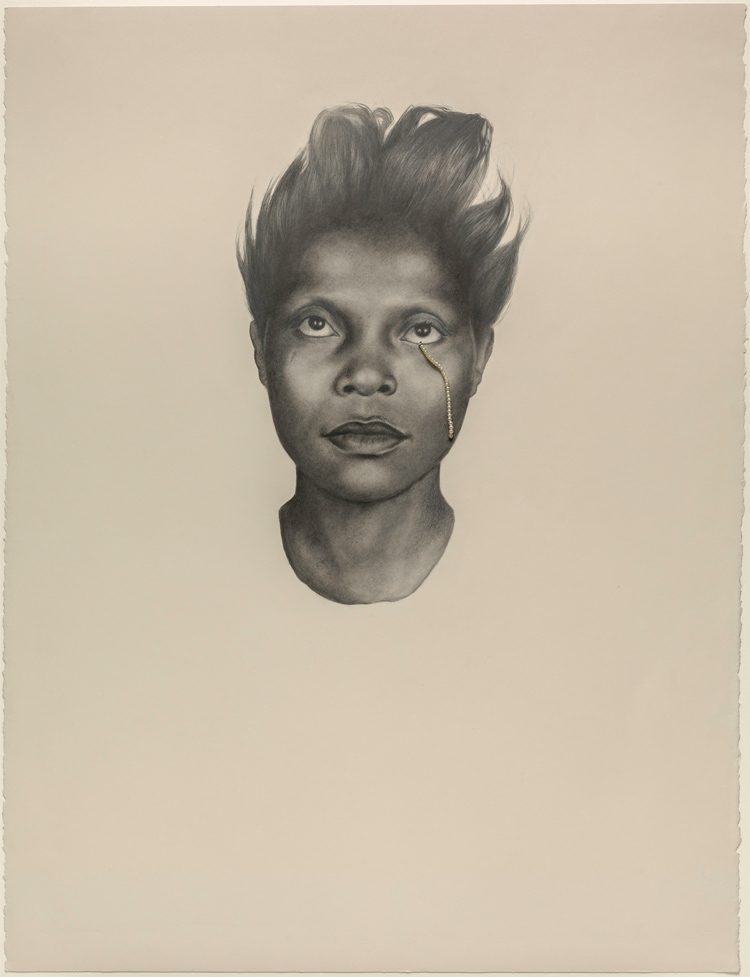
Whitfield Lovell, Kin XLV (Das Lied von der Erde), 2011. Conté on paper and string of pearls, 30 x 23 x 1/8 in. The Phillips Collection, Washington, DC, The Dreier Fund for Acquisitions, 2013 © Whitfield Lovell and DC Moore Gallery, New York
Whitfield Lovell often uses allusive titles for his works that draw references from music, film, and poetry. In this case, his subtitle echoes the name of Gustav Mahler’s 1909 composition Das Lied von der Erde (The Song of the Earth). Mahler’s piece comprises six songs for two voices and an orchestra. In this Kin, Lovell portrays the female figure with tears of pearls streaming down her face, evoking the feeling of sadness captured in Mahler’s second song, “Der Einsame im Herbst” (“The Solitary One in Autumn”).
Herbstnebel wallen bläulich überm See; Vom Reif bezogen stehen alle Gräser; Man meint, ein Künstler habe Staub von Jade Über die feinen Blüten ausgestreut.
Der süße Duft der Blumen ist verfl ogen; Ein kalter Wind beugt ihre Stengel nieder. Bald werden die verwelkten, gold’nen Blätter Der Lotosblüten auf dem Wasser zieh’n.
Mein Herz ist müde. Meine kleine Lampe Erlosch mit Knistern, es gemahnt mich an den Schlaf. Ich komm’ zu dir, traute Ruhestätte! Ja, gib mir Ruh’, ich hab’ Erquickung Not!
Ich weine viel in meinen Einsamkeiten. Der Herbst in meinem Herzen währt zu lange. Sonne der Liebe willst du nie mehr scheinen, Um meine bittern Tränen mild aufzutrocknen?
Autumn fog creeps bluishly over the lake. Every blade of grass stands frosted. As though an artist had jade-dust over the fine flowers strewn.
The sweet fragrance of flower has passed; A cold wind bows their stems low. Soon will the wilted, golden petals of lotus flowers upon the water float.
My heart is tired. My little lamp expires with a crackle, minding me to sleep. I come to you, trusted resting place. Yes, give me rest, I have need of refreshment!
I weep often in my loneliness. Autumn in my heart lingers too long. Sun of love, will you no longer shine to gently dry up my bitter tears?
–from Gustav Mahler, Das Lied von der Erde (The Song of the Earth), 1909

